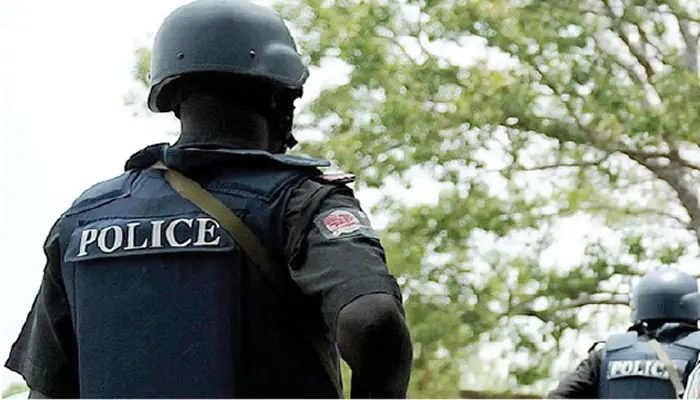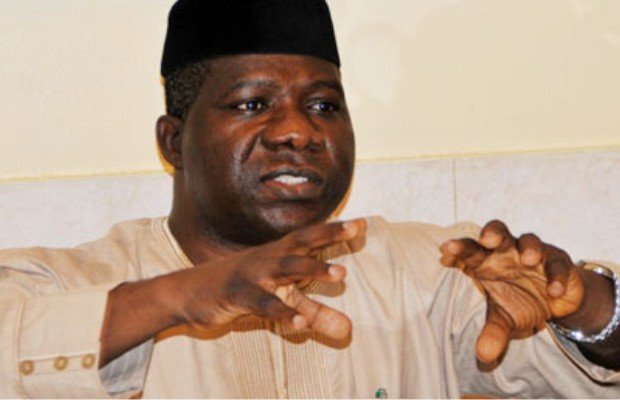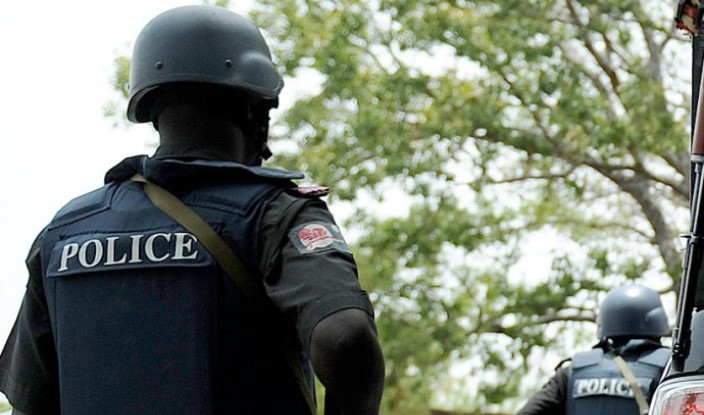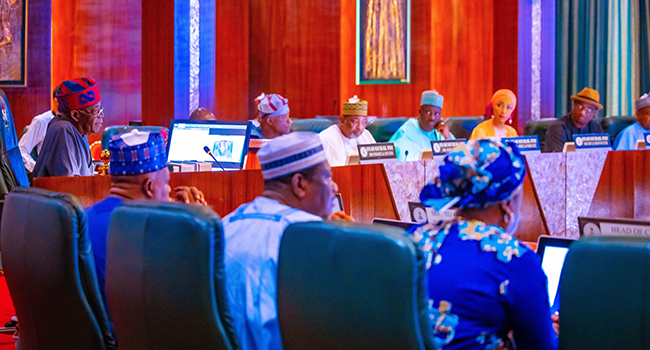Since 1999, as insecurity in Nigeria has surged dramatically, federal and state governments have been divided over whether to maintain the current central policing system or shift to a state/local policing model.
In February 2024, President Bola Tinubu and the governors of all 36 states agreed that implementing a state/local policing system could provide a more effective response to the severe insecurity that threatens lives and property across the nation.
It is distressing that news of Nigerians being killed by bandits and terrorists floods the media daily. These unnecessary and preventable deaths highlight the deep-rooted insecurity and the consequences of inadequate policing. Given that ensuring the safety of lives and property is a fundamental duty of the government, the ongoing loss of Nigerian lives at an exponential rate is both alarming and unacceptable. This is particularly true since our leaders have the ability to curb, if not halt, this tragic loss of life by restructuring the nation’s security system—an area where their leadership has thus far fallen short.
The sheer number of Nigerians who have lost their lives since the return to multiparty democracy in 1999 is not just shocking but overwhelming.
Here’s a snapshot:
As of September 30, 2024, Statista.com reports that 38,000 deaths in Nigeria have been caused by domestic terrorists, including the religious extremist group Boko Haram and bandits. For perspective, the death toll in Nigeria due to insecurity is about 3,000 less than the number of lives lost in the ongoing one-year-old Israeli-Palestinian war, which has resulted in approximately 41,000 deaths in Palestine and Gaza—the focal point of the Middle East conflict with religious dimensions.
While Israel and Palestine are engaged in an active war, leading to the tragic and high number of casualties, Nigeria is not technically in a conventional war. However, the country has been locked in an asymmetric conflict with non-state actors for nearly two and a half decades.
As a result, a significant number of Nigerians have lost their lives in this prolonged state of turmoil, especially in remote areas, notably in the northeastern, northwestern, and parts of the north-central regions, where conditions have been harsh and life precarious.
Given this situation, the need for effective policing in Nigeria cannot be overstated. The lack of such policing, among other issues, has created an environment where insecurity can thrive, leading to the widespread suffering of our people.
There is no doubt that policing is crucial for ensuring the safety and security of lives and properties. It is clear that the current police force is overwhelmed, possibly because the existing system is not well equipped to handle the increasingly complex criminal challenges facing the country.
Currently, Nigeria operates a centralized policing system. Under this system, while the state governor is designated as the chief security officer of their state, the actual control lies with the Inspector General of Police (IGP), who is based in Abuja,the Federal Capital Territory, FCT. As a result, the state police commissioner takes directives only from the IGP, not the state governor. This structure aligns with Section 214(1) of the 1999 Constitution of the Federal Republic of Nigeria, which mandates: “There shall be a police force for Nigeria, which shall be known as the Nigeria Police Force, and subject to provisions of this section no other police force shall be established for the Federation or part thereof.”
To alter this framework embedded in the nation’s laws, a constitutional amendment is required—a challenging endeavor due to the complex legislative process that involves federal lawmakers and requires the approval of a majority of state-level legislators. Nevertheless, despite the challenges, a deliberate change in Nigeria’s security structure is essential to effectively combat the insecurity plaguing the nation.
Effective policing is known to lower crime rates, build trust and confidence within communities, enhance public safety, and promote economic growth and development. Therefore, establishing a solid policing framework is essential for Nigeria. However, the limited funds available for training police personnel, resulting in a lack of capacity, pose a significant challenge to the Nigerian police force. These issues mirror those affecting nearly all sectors within the country’s public administration.
Some of the critical challenges that need to be addressed include insufficient resources, corruption and misconduct, strained relations between communities and the police, and emerging threats like terrorism and cybercrime—areas where the police, as currently structured, lack the institutional expertise to handle effectively, as these are relatively new challenges.
To tackle these issues, Nigeria has initiated several reforms, such as:
(a) Police reform programs
(b) Community policing initiatives
(c) Counter-terrorism strategies
(d) International partnerships and training
Despite these efforts, Nigerian citizens, particularly those in rural areas, continue to suffer under relentless attacks from religious and criminal elements since the return to multiparty democracy in 1999. This ongoing insecurity remains a significant challenge, despite the best efforts of the current government.
Given this context, many have argued that a state or local policing model might be more effective than the current centralized policing system in addressing the new wave of criminal activities that threaten defenseless Nigerians.
There has been resistance to the idea of state police, dating back to its initial proposal in 1999 under the administration of then-President Olusegun Obasanjo (OBJ, 1999-2007). According to historical records, OBJ faced impeachment threats from federal lawmakers who were influenced by those opposed to state police. Their concerns included the lack of funding to support such a system and the risk of misuse if governors had full control over the police in their states.
A recent incident illustrates the complexities of the current system. Following a court ruling ,IGP Kayode Egbetokun reportedly ordered the police to withdraw from local government elections in Rivers State. However, the elections proceeded under the direction of the state governor, Siminari Fubara, who relied on another court ruling authorizing the election, used vigilante groups to ensure the process was completed successfully. This event highlights the urgent need to reassess Nigeria’s current policing structure and judicial interference in our electoral system.
The conflict between the Rivers State governor and the IGP on election matters brings into focus broader questions about the role of the police in Nigeria’s electoral processes and the ongoing debate between adopting a local policing model versus maintaining the central policing system.
As a nation striving for optimal security for both lives and property, it is crucial that we urgently and impartially evaluate which approach is best suited to address the current insecurity challenges facing our country.
This is why the bill advocating for the establishment of state police, which is currently under legislative review in the House of Representatives, is a positive development. It should be pushed forward with renewed urgency to ensure its inclusion in the ongoing process to amend the 1999 Constitution.
While local/state policing has its advantages, such as fostering community engagement, quick response times, deeper understanding of local issues, adaptability, and cost-effectiveness, it also has drawbacks. These include limited resources and expertise, high susceptibility to political influence, inconsistent training standards, and challenges with coordination across different jurisdictions.
Conversely, central policing offers benefits like standardized training, access to specialized skills and resources, better coordination and communication, economies of scale, and the ability to conduct national-level intelligence gathering—critical for combating complex criminal activities. However, its disadvantages include a lack of close connection to local communities, bureaucratic hurdles, risks of centralized control and abuse, and limited awareness of local needs.
The strengths of central policing often align with the weaknesses of local/state policing, and vice versa, meaning the two approaches tend to balance each other out. The real challenge lies in choosing the approach that will serve the country’s needs most effectively. This is where a hybrid model—combining elements of both systems—could offer a more balanced and pragmatic solution, potentially transforming our approach to security if our lawmakers are willing to adopt it.
The recent Supreme Court decision mandating that funds designated for Local Government Areas (LGAs) be directly transferred to their accounts and managed by the elected grassroots representatives strengthens the argument for implementing state police.
This ruling overturns the previous arrangement in which state governments controlled LGA funds. Under the new system, LGAs would allocate resources for security, enabling them to hire and maintain local police forces as they see fit.
At the state level, funds previously directed toward supporting central police operations could instead be used to coordinate local police within LGAs. This would address concerns about funding shortages, one of the main reasons governors were initially hesitant to embrace local/state policing.
Currently, aside from the central police headquartered in Abuja, states operate informal policing mechanisms, such as vigilante groups under various names. With the adoption of decentralized policing through constitutional amendments, these systems could be formalized into an official police force with proper recognition, akin to the native police of earlier times. Alternatively, a hybrid model could be adopted, blending aspects of both central and local/state policing.
Many nations already use such hybrid models, combining local and central forces. Examples include decentralized policing with national standards, regional police forces with local branches, or community policing supported by centralized oversight. Countries like the United States (local police with federal backing), the United Kingdom (local forces with national coordination), Australia (state police forces supported by federal agencies), and Japan (community policing with national supervision) have all implemented these hybrid approaches.
In my view, these countries provide strong examples for Nigeria to consider, offering valuable lessons in effective policing.
To conclude, it is worth noting that Nigeria previously practiced local policing in the pre-independence era through native and district constabularies. This approach persisted until the 1914 amalgamation, which consolidated the local police structures of the two protectorates into a unified national framework.
Having experienced both local and central policing models, a balanced hybrid approach—blending elements of both—could enhance the effectiveness of policing in Nigeria. It is hoped that our lawmakers will seriously consider this hybrid option as a viable alternative to the current system.
A similar approach could be applied to deciding the most suitable system of governance for our country. This decision is currently in the final stages of refinement by our legislators, who recently conducted a retreat in Kano, Kano State, focused on constitutional review.
In my view, when it comes to the debate over whether to maintain or replace the current system of governance, it’s clear that instead of continuing with the imported parliamentary and presidential models that Nigeria has experimented with over the past 64 years of independence, we should adapt our democracy to align with the unique dynamics and cultural characteristics of our environment. This customization could lead to a more effective and well-functioning society. Our neiboring country Ghana operates a hybrid. Perhaps that is why religion orientation of president candidates and their running mates do not matter in the country of Ghana as it is a major issue in Nigeria.
A crucial starting point to end insecurity in our country would be to transition our policing system from a centralized structure to a state/local model, which could help curb the widespread loss of lives caused by violent actors who have been terrorizing our communities with impunity.
Given this, any further delay in implementing the state/local policing system—an initiative that has been under consideration for 25 years since the return of multiparty democracy in 1999, and for which there is broad support across Nigeria as both the presidency and all the 36 governors reaching a concensus in February this year —would suggest that our political leaders, particularly the legislators, are neglecting their responsibility to protect lives and properties implying that they may be recklessly putting the lives of a critical mass of Nigerians at risk.
This is a path we hope they will avoid.
Magnus Onyibe, an entrepreneur, public policy analyst, author, democracy advocate, development strategist, alumnus of the Fletcher School of Law and Diplomacy, Tufts University, Massachusetts, USA, and a former commissioner in the Delta State government, sent this piece from Lagos, Nigeria.
To continue with this conversation and more, please visit www.magnum.ng.








